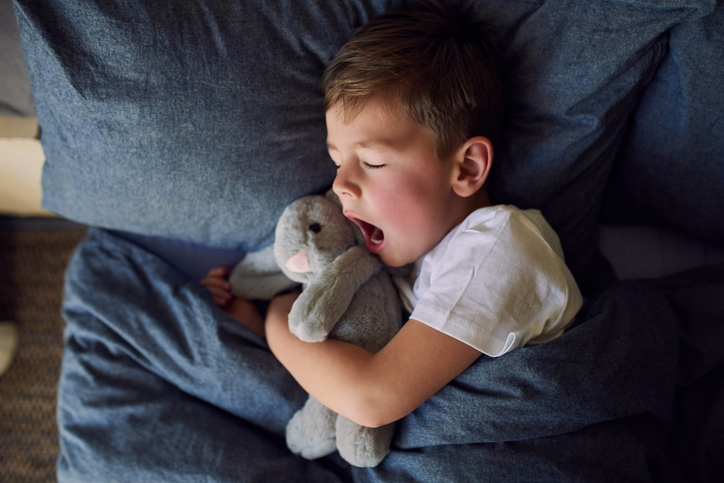
The time it takes for Australian boys to fall asleep remains the same between 10 and 12 years of age, according to new Flinders University research.
With these new findings, families and clinicians can expect that children's sleep problems may be better explained by social and behavioural factors rather than biological factors before the age of 12.
Previous research has shown that as children grow into adolescents, they build up more tolerance against the feeling of sleepiness during the evenings. This development means they can take longer to fall asleep and therefore don't wake up feeling refreshed for school in the morning or for sports activities on weekends.
A new study led by Dr. Chelsea Reynolds, a Clinical Psychologist at Flinders University, has investigated when this change in sleepiness levels happens in pre-adolescent boys to better inform future therapies that can prevent sleep problems in adolescence.
To measure the boy's sleepiness levels, experts invited twenty 10-year-old boys to stay at a sleep camp every 6 months for an 18-month period. They were given activities to complete during the day and experts measured their sleep throughout the night through a series of tests.
During each test, the boys were woken up if they showed signs of falling asleep. These tests happened nine times across the night, from 7:30 pm until 3:30 am, and enabled sleep experts to measure the time it took them to reach the point of sleepiness again.
Dr. Chelsea Reynolds says that while biological changes during puberty can make adolescent sleep difficult, new findings show that these changes don't become a problem up to the age of 12.
"As you would expect, we found that the 10-year-old boys took a long time to fall asleep early in the night and fell asleep very quickly as the tests reached the early hours of the morning and they grew more tired."
"However, what was interesting was that across the 18-month period, the boys took about the same amount of time to fall asleep during each sleep test. This means that their sleep remained stable over time. Overall, this indicates that for boys up to 12 years of age, they will not experience any changes to their sleepiness levels in the evening."
"What happens after the age of 12, however, is still to be researched in this same level of detail over time. We'd expect that some time before the age of 15, they will start to show less sleepiness in the evening and take longer to fall asleep. That is the time when parents may start seeking help for their teenagers who can't get up on time for school."
Dr. Reynolds says that it's common for teenagers to present to a sleep psychologist for help with delayed sleep patterns and extreme sleepiness in the morning.
Treatments of sleep problems in this age group may therefore focus on night-time fears, bedtime schedules and improving children's sleep environment.
The article, 'Development of evening sleep homeostatic pressure in early adolescent boys', by Chelsea Reynolds, Michelle Short, Michal Kahn (Tel Aviv University), Cele Richardson (University of WA), Melanie Heath, Hannah Whitall, Leon Lack, and Michael Gradisar (Wink Sleep; Sleep Cycle) has been published in Sleep Medicine.
The long-term sleep study was funded by the Australian Research Council (grant number DP150100215)






